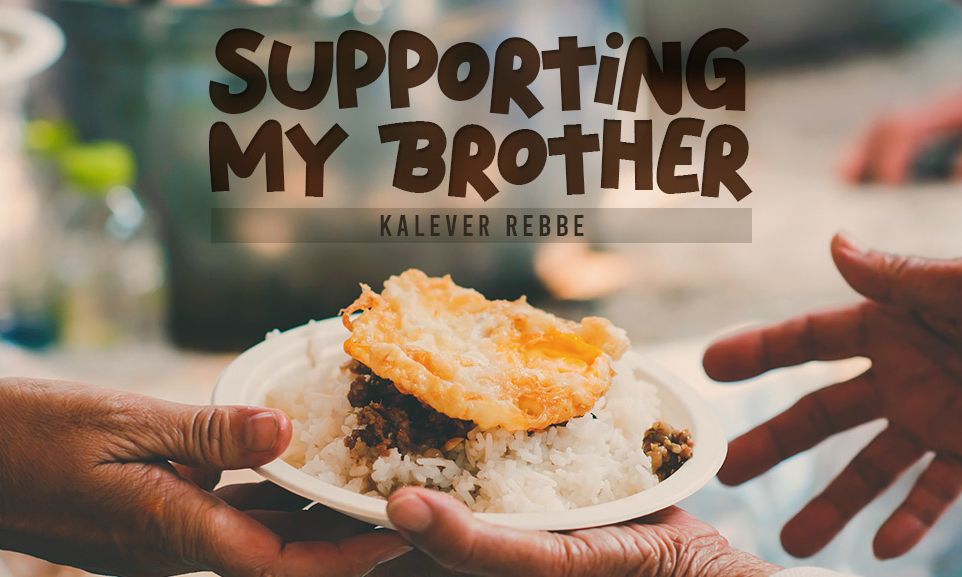
Supporting My Brother
If we want Hashem to treat us like His son - with the love and mercy of a father - then we must have the love for each and every Jew as our siblings. During these times of tremendous upheaval, we must be diligent to look for the good in everyone.

“With him was Oholiab, son of Ahi-samach, of the tribe of Dan.” (Shemos 38:23)
Without Judgment
Before Reb Zusha from Anipoli was known throughout the world as a Tzaddik, he was a tutor for a wealthy family in a small village. While working for this family, all Reb Zusha’s needs were taken care of. As long as Reb Zusha was working for him, this patriarch of the family was successful beyond belief.
One time, Reb Zusha traveled to his Rebbe, the Maggid of Mezritch, and was away from the town for weeks upon weeks. When he returned, his employer asked him where he had been for so long. And he answered that he was with his Rebbe.
Now, this man was smart and made a logical deduction: if I am this successful and wealthy in the merit of supporting Reb Zusha, how much wealthier can I become if I sent the money to his Rebbe, the Maggid, who clearly must be a greater Tzaddik!
So, the man stopped providing financial support to Reb Zusha, and instead sent money directly to the Maggid.
After a brief time, things started turning sour for this businessman. He lost a tremendous sum of money and it seemed that every investment he made failed. He quickly understood the reason: he stopped supporting Reb Zusha. But that did not make sense to him. He sent for Reb Zusha and asked him: “I don’t understand something. As long as I supported your financial needs, I was successful. However, the moment I stopped and began supporting your Rebbe, who surely is a greater and more important person than you, I began losing everything. Why?”
Reb Zusha humbly answered: “When you provided me with an income and financial support, I wasn’t worthy, and they said in the Heavens, ‘Here, this businessman is supporting all the needs of this yid without checking into his worthiness too carefully. So too, middah keneged middah (measure for measure), in response, we will provide all the financial support to this businessman without checking into his worthiness too closely.'”
“However,” continued Reb Zusha, “when you started investigating, making calculations to determine who is a “more worthy” person to receive your finances, the Heavens did the same thing to you, and they started seeking a a more worthy person to receive these blessings and kindnesses.”
Brotherly Love
From this story, we can also understand the fundamental idea why the AriZal instituted that before you pray, you must accept the mitzvah of loving your fellow Jew as yourself. And we can understand the reasoning through an analogy:
There were two brothers, Reuven and Shimon. Reuven was extraordinarily wealthy; everything he touched turned to gold. However, he was cheap and stingy. Shimon lived a life that was the exact opposite of his brother: he was tested by the realities of abject poverty. When the time came to marry off his daughters, Shimon, without a penny to his name, decided to go ask his brother for help to pay for the weddings.
When he got to his brother’s house, the butler asked him, “Who should I tell the master of the house is here?”
“His brother Shimon,” he answered.
The butler went to his master, to Reuven, to see if he should escort the visitor in. Reuven immediately knew what his brother wanted, and told his butler to tell the visitor that he doesn’t have a brother Shimon and to send him along his way. Shimon left the house rejected, embarrassed, and devastated. On the way home, he stopped by his father’s house to tell him what happened. His father heard this story and it was etched into his memory.
After some time passed, Reuven came to visit his father. When he got there, his father asked, “Who are you?”
“I am Reuven.”
“I don’t know any Reuven. Who are you, and why are you here?”
“What do you mean?! I am Reuven!”
“I don’t know you,” the father insisted.
Reuven began to cry uncontrollably and pleaded, “Father! I am your son Reuven! Don’t you remember me?”
“I have a son Shimon. If you do not have a bother named Shimon, then you are clearly not my son.”
The lesson of this analogy is clear and sharp. When someone davens, when they pray to their Father in Heaven, they first need to remember that there are yidden all around the world who are their brothers and sisters. We are one family. If we want Hashem to treat us like a son, to have the love and mercy of a father, then we must have the love for each and every Jew, who are our siblings. Without accepting the mitzvah to love each Jew as yourself, Hashem will not treat you like a son.
This is what Chazal means when they teach us (Bava Basra 9a) that one should investigate for sustenance. When a yid comes to you seeking help, seeking sustenance and financial assistance, don’t look into the worthiness of that yid. Don’t look to only support the righteous. Support every yid with equal compassion and love like you would a sibling.
During Difficult Times, Judge Favorably
This is even more critical when Yiden are going through challenging times. During such times, a person needs to be more diligent to look at the good in everyone, including the wicked. Like Reb Yitzchak Isaac of Kamarna, zt”l taught in the end of his book Heichel Bracha in the name of the Tomer Deburah: During times of suffering, you need to cling to the 9th attribute from the 13 Attributes of Mercy which is, “to send all of the sins into the sea” – to rid your brother of all his sins by proactively looking at the positive in everyone.
Dan’s Role
This is perhaps why the Tribe of Dan is assigned the task of being the “collector of all camps” (Bamidbar 10:25). Dan would travel in the back and help all the yidden who were weak, falling behind or were injured in war. They had this role because they had this character trait of being able to find the good in everyone. As it says in Bereishit (49:16), “Dan will avenge his people, like one, the tribes of Israel.” They judged everyone, even the simplest yid, as one of the tribes, as being something special. This trait enabled them to help every yid without exception.
Therefore, someone from the Tribe of Dan, Oholiav the son of Achisamach, was selected to build the Mishkan. It was their middah, their ability to see the good in everyone that would create a space in this world for Hashem’s presence to dwell and for the prayer of the Jews to be answered.
This is alluded to in the name: “Oholiav”. This name can be broken down into two words: Ohel and Av, tent and father. Our father, Hashem, will dwell in our tents. When will Hashem dwell amongst us and be present? When, as the pasuk continues, “son of Achisamach” – I am a son who is supporting (“samach”) to “achi – my brother.
***
The Kalever Rebbe is the seventh Rebbe of the Kaalov Chasidic dynasty, begun by his ancestor who was born to his previously childless parents after receiving a blessing from the Baal Shem Tov zy”a, and later learned under the Maggid of Mezeritch zt”l. The Rebbe has been involved in outreach for more than 30 years, and writes weekly emails on understanding current issues through the Torah. You can sign up at www.kaalov.org.


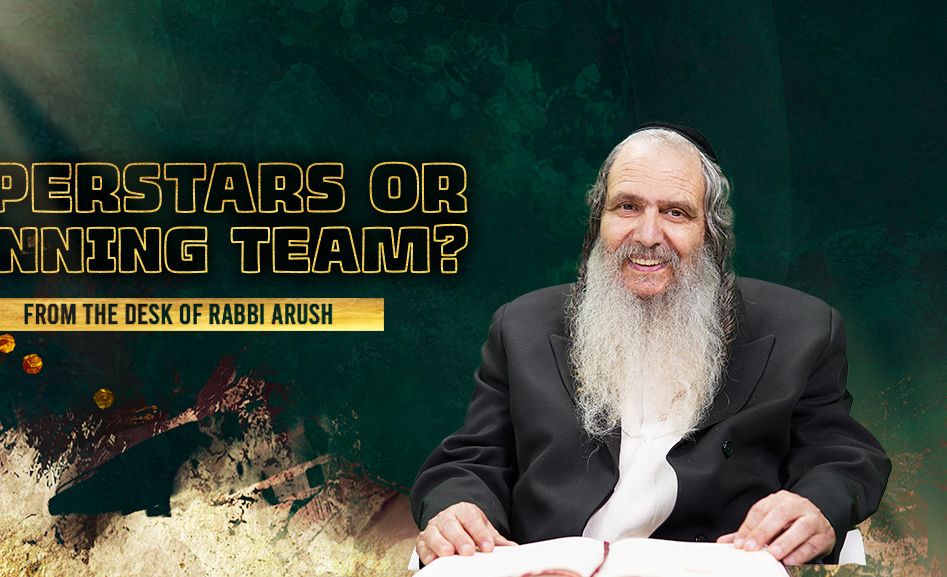
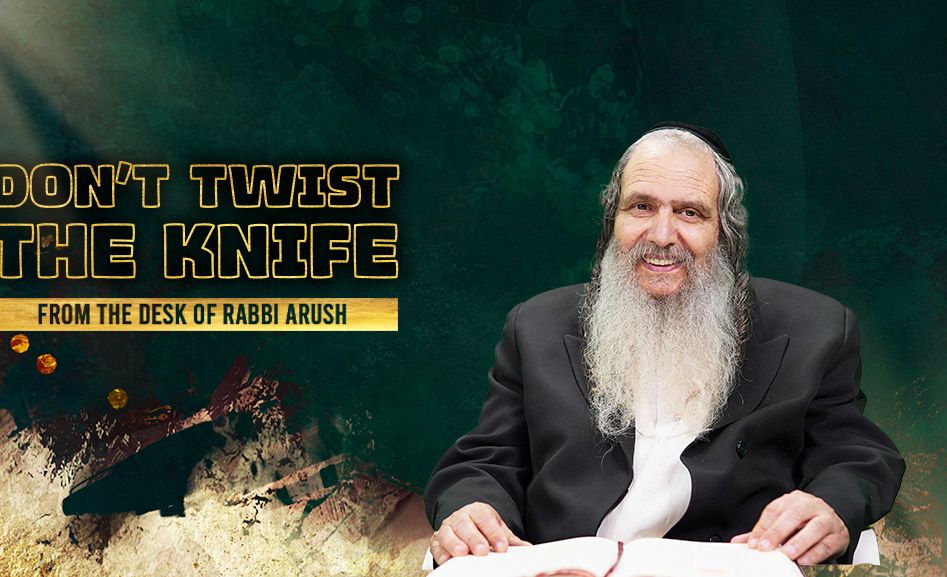



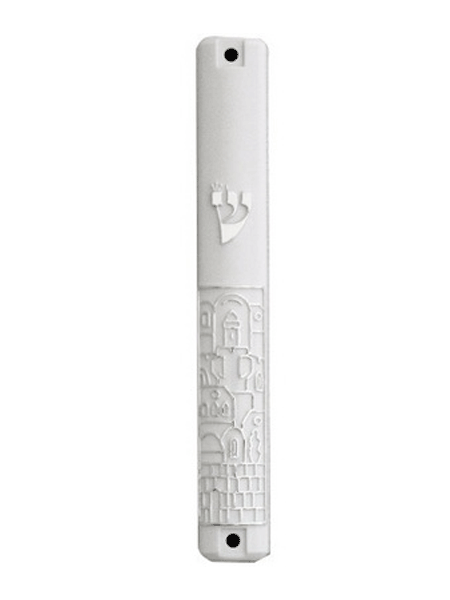

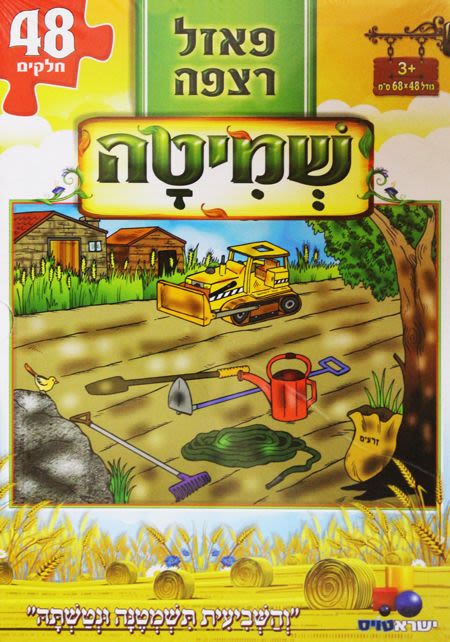

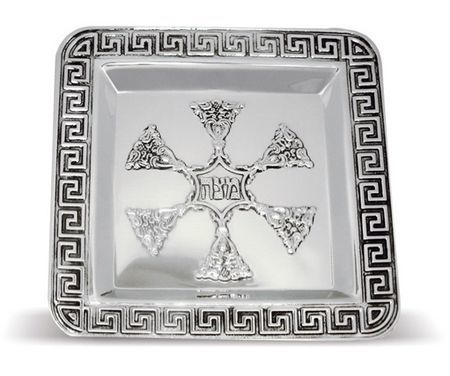
Tell us what you think!
Thank you for your comment!
It will be published after approval by the Editor.